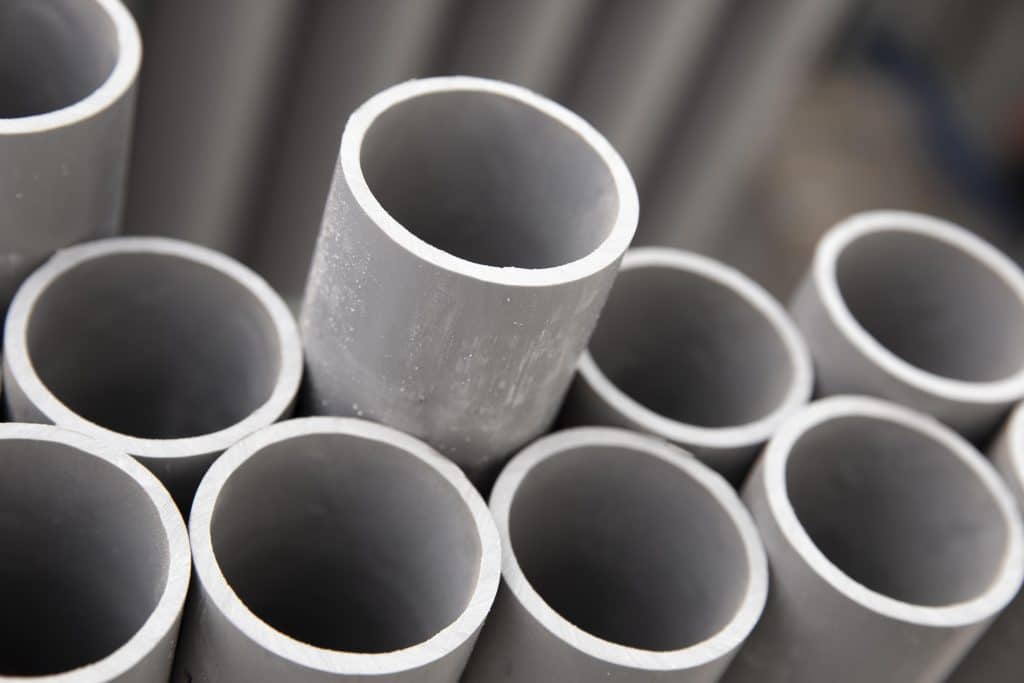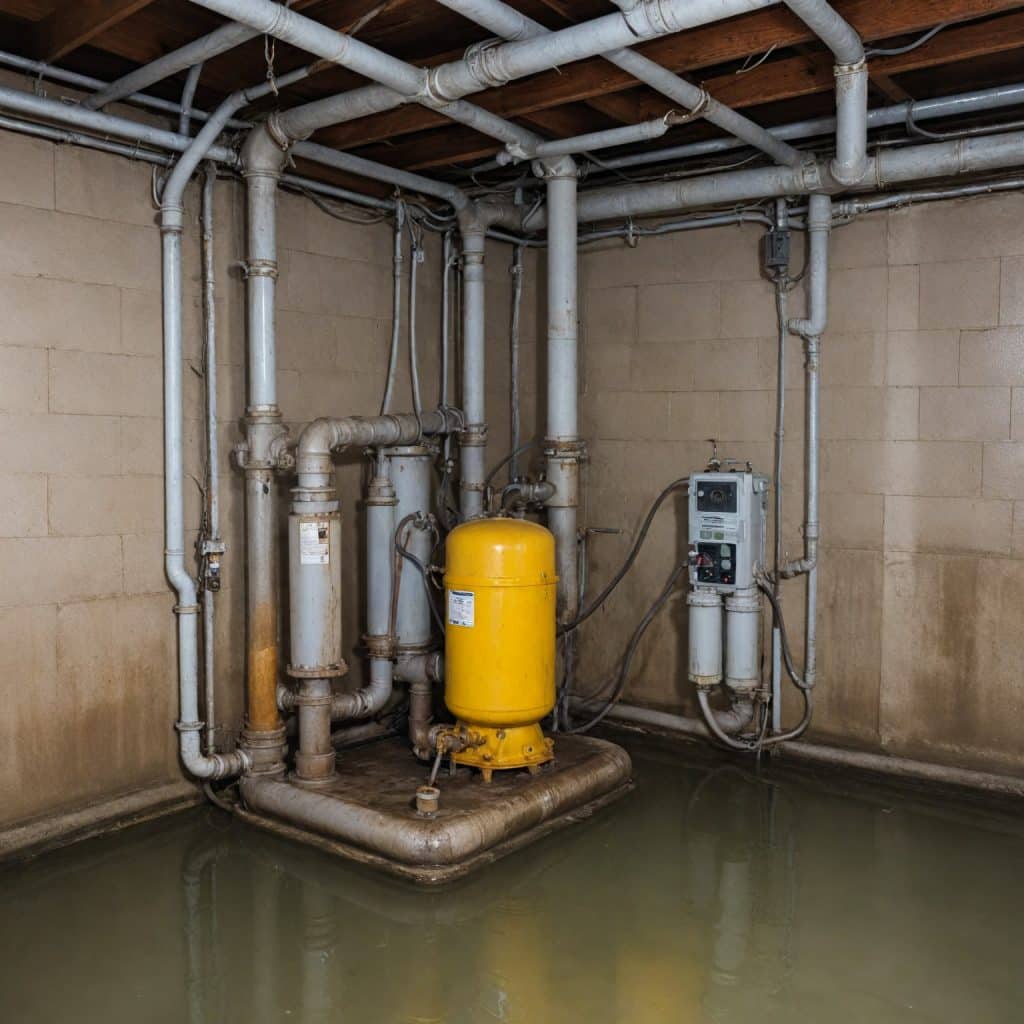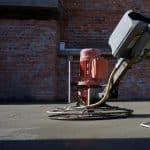Contents
A dry and secure foundation is not just a matter of comfort but an important aspect of home maintenance that often goes unnoticed until problems arise. Effective basement drainage is a good strating point. It prevents water damage, mold growth, and structural issues. It is also a wise investment, since unaddressed basement issues cost much more in the long run.
What Is a Drainage System?
Long story short – a basement drainage is a complex system of waterproofing measures to safeguard your property. It includes but not limited to:
- Ventilation
- Special pipes placement
- Sump pump installation
- Interior and exterior membranes
- Drain tiles
- Proper grading
The earlier you notice that something is leaking the better. Look for signs such as water marks, a musty smell, or the presence of efflorescence. These indicators, found on walls, can help save you a fortune in the future on repair works.
We recommend staying vigilant for early warning signs and understanding the underlying causes of drainage problems. Thus, you can take timely and effective actions that will protect your home’s foundation and maintain a healthy living environment.
Common Problems with Basement Drainage
The typical issues homeowners face include leaks through the floor (often due to hydrostatic pressure beneath the foundation) or walls (caused by water penetrating through cracks or the cove joint). Both are red flags that show poor drainage around the foundation. Over time, these leaks can lead to significant structural damage and even health hazards like mold growth.
Now that we talked about leaks, what are the main causes of the poor drainage? Two leading reasons are inadequate grading around the home and clogged or improperly installed gutters and downspouts. All these factors lead to irreparable structural damage and even health risks.
However, there is also good news. If you regularly check for and seal any cracks and improve exterior drainage to redirect water away from the foundation you can easily protect you and your family from water damage.

Saving you from future headache: inspection and maintenance
As you already understood, regular inspection is extremely important. Look for signs of water damage or moisture build-up. Ensure your gutters and downspouts are clear and direct water away from your home’s foundation. It’s also wise to perform basement underpinning in Toronto with our professionals in advance. Especially if you live in an area prone to heavy rainfall or flooding.
Maintenance tips
- Clean gutters and downspouts regularly;
- Re-grade your lawn if necessary to ensure proper drainage;
- Install window well covers to prevent water accumulation.
Regular checks, along with Will Fix professional advice safeguard your home against potential water damage and provide peace of mind.
Solutions for Effective Drainage
Basement drainage has two main types:
- Interior waterproofing
- Sump pumps remove accumulated water inside the basement. They’re essential in areas prone to flooding or with high groundwater levels;
- Interior weeping tile systems help in redirecting water to the sump pump;
- Sealants and coatings prevent moisture seepage.
- Exterior waterproofing
- French drains are trenches filled with gravel or rock containing a perforated pipe, diverting water away from the foundation;
- Proper grading ensures the landscape slopes away from the foundation and prevents water accumulation near the basement walls;
- Gutter systems and downspouts are effective in redirecting roof runoff away from the foundation.

Both interior and exterior drainage solutions are vital in their own right. Sump pumps effectively manage water that has already entered your basement. Exterior solutions, like French drains, are proactive measures to prevent water from reaching your basement.
Their combination is often the most effective approach to ensuring a dry and healthy basement. Our team od experienced waterproofing and underpinning contractors can do both, as well as many other types of work. Call us today and forget about water damage for years.
DIY tips
We’re not actually into DIY, easpecially in such aspects as basement waterproofing and underpinning. Of course you can perform minor works without our help. However, our team brings far more benefits, from many years of experience to turnkey solutions.
Here is where you can start:
- Ensure the lawn slopes away from your house.
- Identify and seal minor cracks in the foundation. Or hire us for epoxy crack injection.
- Install window well covers to prevent water accumulation.
Finally, as we already mentioned, for more severe drainage problems, seek our professional consultation. We guarantee fast and affordable solutions for your absolute satisfaction and peace of mind.
Conclusion
One of the most important aspects to keep your home safe and sound is drainage. Our trusted basement underpinning in Hamilton can improve it and save your house from water damage.
However, it is still you who play a key role in this process by first recognizing potential drainage issues and then taking appropriate preventive actions.
Your proactive measures prevent immediate water-related damages and protect against long-term structural issues, while we easily handle the rest.
Basement Drainage FAQ
-
Why is DIY basement drainage dangerous?
Basement drainage includes measures such as ventilation, placement of special pipes, installation of a sump pump, use of interior and exterior membranes, installation of drainage tiles, and proper grading. -
What are the main causes of poor drainage around a foundation?
Insufficient ground level around the house and clogged or improperly installed gutters and downspouts. -
Are there any available methods to protect a basement from water?
Various methods are available to protect your basement from water, including interior and exterior drainage systems and sump pumps. External solutions, such as French drains, prevent water from entering the basement, while internal systems, such as sump pumps, help deal with water that has already penetrated the space. -
Should I take any precautions to protect my home from water damage?
It’s important to regularly inspect your home for water damage and moisture buildup, make sure your gutters and downspouts are clean, and have your basement propped up in advance by professionals if necessary, especially if you live in an area prone to heavy rain or flooding.
